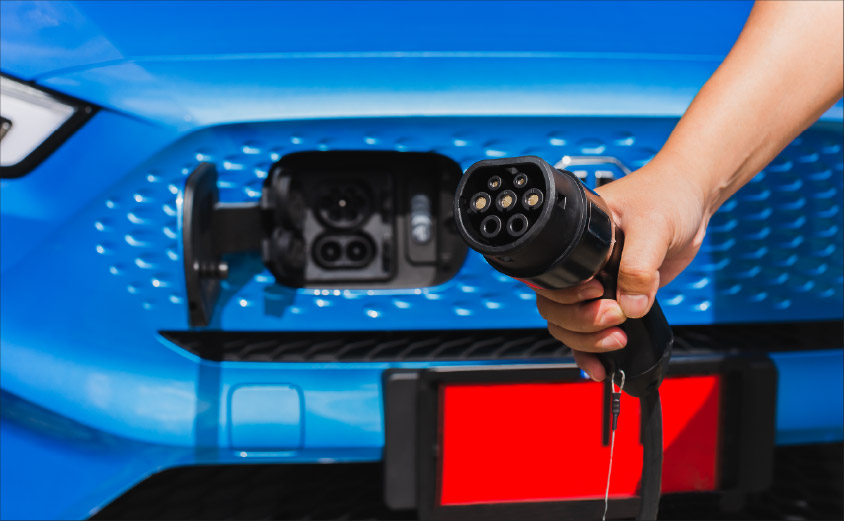Explore the Rapid Expansion of Motor and Sensor Cable Applications in Saudi Arabia’s EV Market

The Saudi Arabia electric vehicle cables market demonstrates a clear dominance of charging infrastructure cables when analyzed by application, followed by vehicle internal power cables, battery-to-module cables, motor cables, and sensor and communication cables. Each of these categories plays a specific role within the electric vehicle ecosystem, reflecting the nation's evolving electric mobility landscape, influenced by Vision 2030’s sustainability objectives, renewable energy integration, and increasing investments in e-mobility infrastructure.
|
Application |
Estimated Market Share (%) |
|
Charging Infrastructure Cables |
34 |
|
Vehicle Internal Power Cables |
25 |
|
Battery-to-Module Cables |
18 |
|
Motor Cables |
13 |
|
Sensor and Communication Cables |
10 |
Charging infrastructure cables capture the largest market share at approximately 34%, primarily due to the swift establishment of electric vehicle charging networks throughout Saudi Arabia. The Kingdom is making significant investments in fast and ultra-fast charging stations in prominent cities such as Riyadh, Jeddah, and Dammam, in alignment with its broader aim to support one million electric vehicles by 2030. These cables are engineered to accommodate high power loads, endure extreme temperature conditions, and ensure user safety through robust insulation and thermal resistance. As the charging network continues to expand, the demand for high-voltage, durable, and weatherproof cables is expected to rise. Additionally, the implementation of both AC and DC fast chargers necessitates varying cable specifications, driving technological diversity within this segment. Government-supported initiatives and public-private partnerships focusing on EV infrastructure will further solidify this segment’s leading position in the Saudi Arabia electric vehicle cables market.
Vehicle internal power cables comprise around 25% of the market and are vital for distributing electricity from the main power source to various vehicle components. These cables are essential for the operation of lighting, infotainment, sensors, and climate systems within electric vehicles. With the increasing sophistication of EV designs and the growing demand for luxury and performance models, there is a heightened need for lightweight, high-performance internal power cables. Local manufacturers are progressively adapting to global standards by introducing flame-retardant, flexible, and low-voltage cable variants to address the industry’s evolving safety and efficiency requirements.
Battery-to-module cables occupy approximately 18% of the Saudi Arabia electric vehicle cables market and are crucial for ensuring efficient energy transfer between battery packs and power modules. As battery technology advances with higher energy densities and accelerated charging capabilities, cable manufacturers are developing products that can manage high current flows with minimal resistance and heat generation. The growth of domestic battery assembly and R&D centers under Vision 2030 is expected to amplify this segment, particularly as Saudi Arabia explores localized battery production through collaborations with global EV and energy storage firms.
Motor cables account for about 13% of the total market and are essential for transmitting power from the inverter to the electric motor. These cables must withstand continuous high temperatures, vibration, and electromagnetic interference. With rising demand for high-efficiency motors and compact drivetrain designs, manufacturers are focusing on enhanced insulation materials and improved flexibility in cable construction. The expansion of electric bus fleets and industrial EV applications, such as logistics and mining vehicles, is also contributing to the steady growth of this segment.
Sensor and communication cables comprise around 10% of the Saudi Arabia electric vehicle cables market. Although currently smaller in share, this segment is poised for rapid growth as vehicles become increasingly connected and autonomous. These cables facilitate communication between sensors, controllers, and external systems, supporting advanced driver-assistance systems (ADAS), navigation, and telematics. The rising integration of smart vehicle technologies and data-driven mobility solutions is expected to significantly increase the demand for high-speed, interference-resistant coaxial and shielded cables.
In summary, the Saudi Arabia electric vehicle cables market, segmented by application, reflects a progression from establishing basic infrastructure to advancing vehicle connectivity and efficiency. The increasing penetration of electric vehicles across public transport, private ownership, and fleet services will diversify cable requirements across power, communication, and control systems. As the ecosystem continues to mature, manufacturers that invest in high-quality materials, innovative cable designs, and localized production are likely to thrive, aligning with Saudi Arabia’s goal to cultivate a sustainable and technologically advanced electric vehicle market.